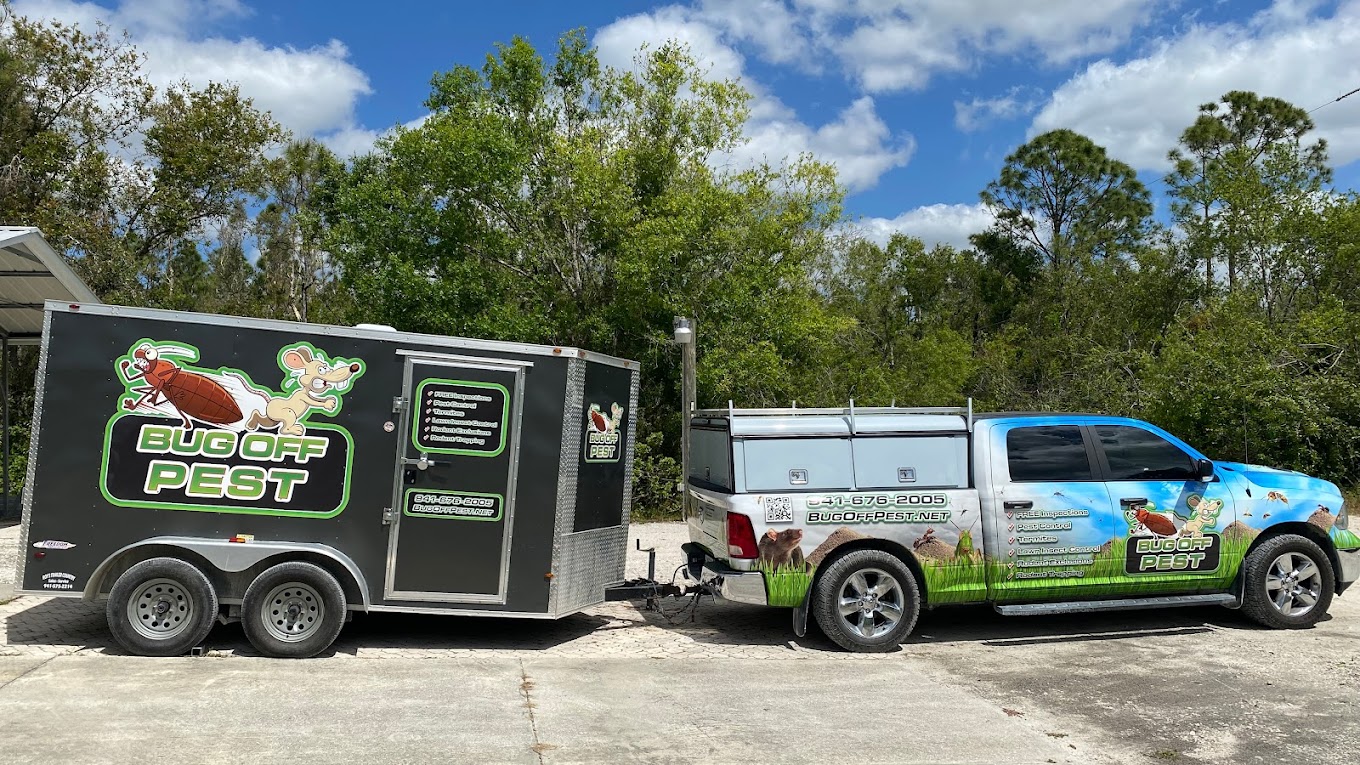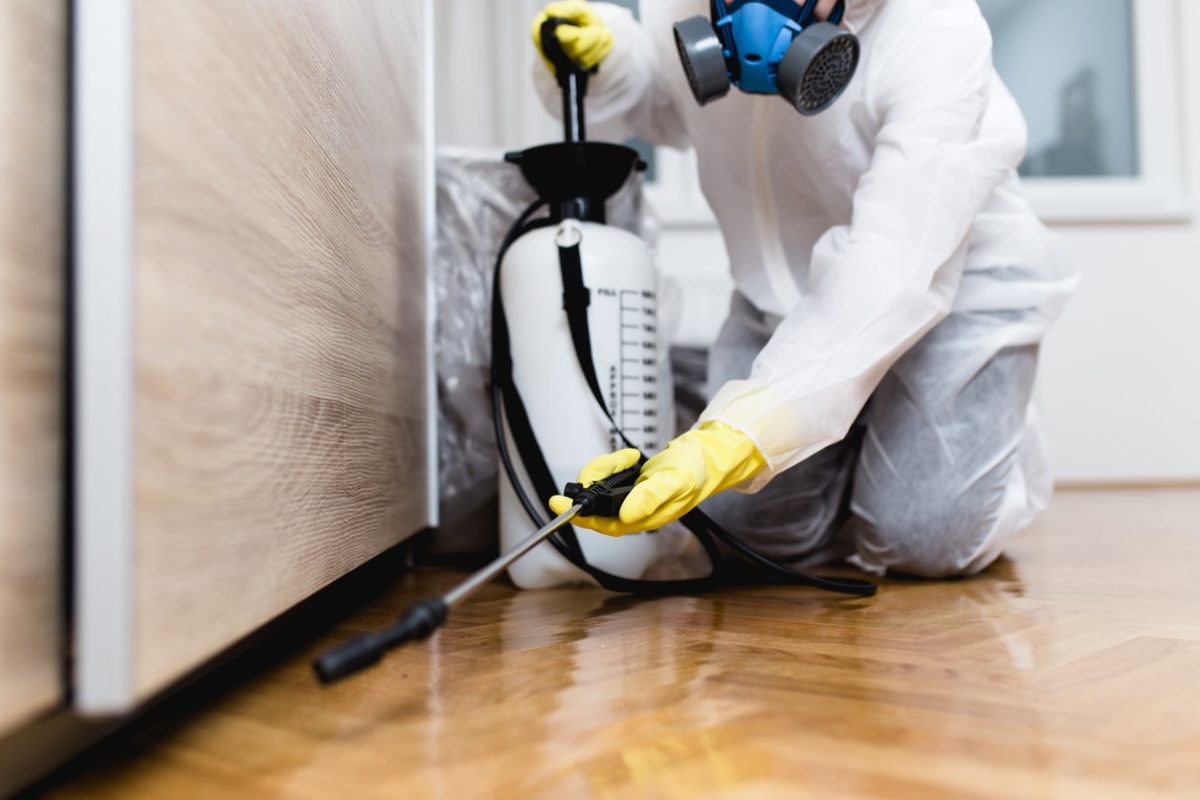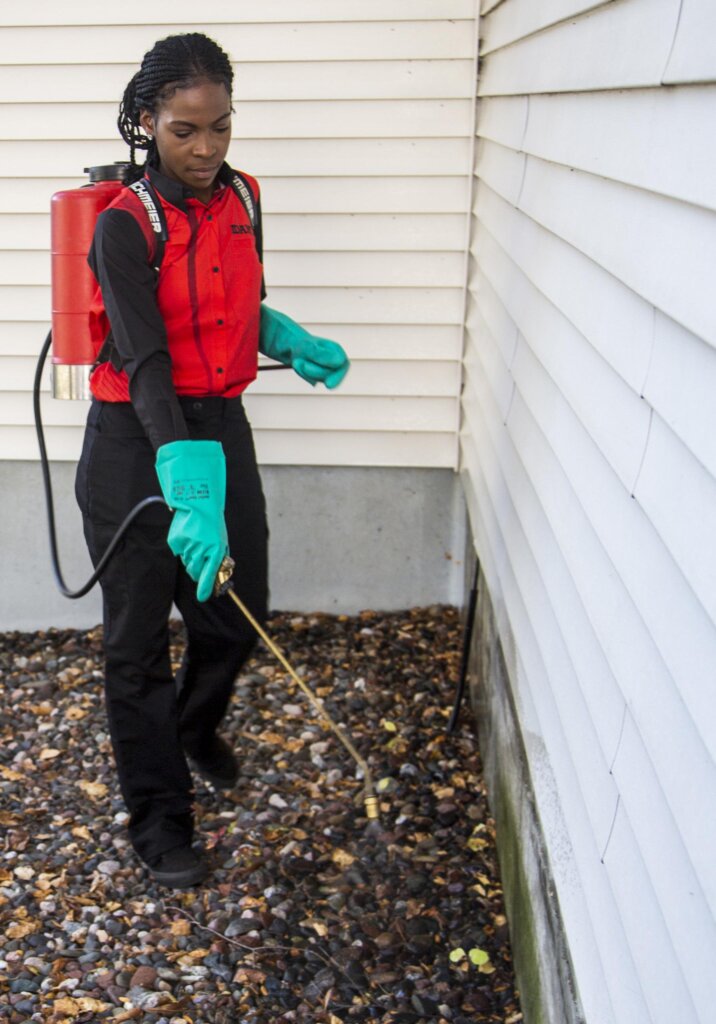Discovering Innovative Strategies and Products for Effective Parasite Control
The landscape of insect control is evolving, marked by the appearance of innovative methods and items developed to boost efficiency and sustainability. From wise catches equipped with sophisticated monitoring systems to biological techniques that use natural killers, these innovations present a paradigm change in exactly how we come close to pest administration. Environmentally friendly chemical choices and pheromone disturbance approaches supply targeted solutions that align with ecological stewardship. As the industry faces these growths, a closer assessment exposes not only their effects however also the prospective difficulties that may emerge in their implementation.
Smart Traps and Monitoring Equipments
Just how can contemporary innovation enhance pest monitoring? One significant improvement is the advancement of wise traps and keeping track of systems, which give real-time information and analytics for effective bug control. These systems utilize sensors and wireless modern technology to discover insect task, informing building managers and pest control experts to infestations before they rise.
Smart catches are outfitted with functions such as bait terminals that bring in insects and catch them efficiently. These traps can be kept an eye on from another location, enabling for prompt interventions and reducing the demand for comprehensive chemical applications. Moreover, the assimilation of artificial intelligence algorithms allows these systems to separate between target parasites and non-target species, boosting the precision of insect control actions.
Additionally, the information accumulated from clever catches can be examined to recognize patterns in insect actions and environmental factors adding to infestations (Pest Control in Port Charlotte). This information is indispensable for creating targeted parasite monitoring approaches tailored to certain environments. By embracing clever catches and keeping an eye on systems, pest control specialists can enhance their operational efficiency and reduce the eco-friendly effect of insect management, ultimately resulting in much safer and much more sustainable techniques in the industry
Organic Bug Control Approaches
Using natural killers and parasites, biological insect control methods supply an ecologically friendly choice to chemical therapies. This strategy entails the introduction or improvement of certain microorganisms that can naturally control parasite populaces, thus lowering reliance on artificial pesticides. Common instances include making use of ladybugs to manage aphid invasions and parasitical wasps to target caterpillars.

Organic control can be categorized into three main approaches: classic, augmentative, and preservation. Classical biological control includes importing all-natural adversaries from the pest's native habitat, while augmentative control involves boosting the populace of existing all-natural enemies via launches. Preservation methods focus on developing problems that sustain these useful organisms in the ecosystem.
It typically needs a comprehensive analysis of bug characteristics and the life cycles of both the insects and their all-natural opponents. As recognition of environmental concerns expands, organic bug control approaches are significantly identified for their lasting duty in incorporated insect monitoring programs.
Eco-Friendly Chemical Alternatives
Environment-friendly chemical options offer a feasible option for insect monitoring that lessens ecological influence while properly regulating parasite populations. These choices are stemmed from natural resources and are meticulously created to target certain parasites without damaging valuable microorganisms, making them a necessary element of sustainable bug control methods.
Amongst one of the most reliable environment-friendly options are plant-based pesticides, such as neem oil and pyrethrin, which are stemmed from the seeds and blossoms of different plants. These substances interfere with the life process of pests, decreasing their populaces without the poisonous impacts related to traditional pesticides - Pest Control in Port Charlotte. Furthermore, necessary oils like peppermint and clove oil exhibit repellent homes, further boosting their utility in bug management

Moreover, environmentally friendly chemical alternatives frequently damage down quicker in the atmosphere, lowering the threat of soil and water contamination. This characteristic aligns with the boosting customer need imp source for sustainable practices in agriculture and city parasite control. As research continues to development, the advancement of ingenious green formulations will certainly even more enhance effectiveness and expand application areas, allowing pest administration specialists to take on greener, more accountable techniques in their methods while guarding human health and wellness and the atmosphere.
Pheromone Interruption Techniques
Another innovative method in sustainable pest management is the use of pheromone disturbance strategies. These methods exploit the all-natural chemical signals, or scents, view publisher site that bugs utilize for communication, especially in breeding actions. By interfering with these signals, bug populations can be efficiently managed without considering unsafe chemicals.
Scent traps are commonly employed in this approach. These catches utilize synthetic variations of insect scents to entice male pests, therefore decreasing their ability to situate women and reproduce. Over time, this can lead to a substantial decrease in bug populaces. In addition, the release of repellent scents can develop complication among pests, additionally preventing their breeding procedures - Pest Control in Port Charlotte.

Integrated Insect Administration Strategies
Efficient parasite control frequently needs a thorough method, and Integrated Bug Monitoring (IPM) techniques give a structure for achieving this objective. IPM incorporates numerous management methods to decrease insect populations while minimizing dependence on chemical pesticides. This multifaceted method starts with thorough monitoring and recognition of parasites, allowing for targeted interventions based on certain bug stress.
Cultural methods, such as crop turning and sanitation, play top article an important duty in preventing insect establishment. Organic controls, including all-natural killers and parasitoids, are utilized to keep bug populations at convenient degrees. When essential, selective chemical therapies are applied, highlighting lower toxicity to non-target types and the atmosphere.
Additionally, education and learning and outreach are integral elements of IPM, advertising understanding amongst stakeholders concerning lasting techniques and pest life process. The versatility of IPM permits specialists to react effectively to transforming pest characteristics and ecological problems. By employing this holistic strategy, IPM not only enhances pest control performance however likewise contributes to lasting eco-friendly equilibrium. Inevitably, Integrated Pest Management represents a forward-thinking option that lines up agricultural performance with ecological stewardship, making it vital in modern pest control strategies.

Conclusion
In verdict, the integration of cutting-edge strategies and items for effective bug control represents a substantial development in lasting pest monitoring. Smart catches and monitoring systems, organic pest control approaches, environment-friendly chemical options, and scent disruption methods collectively boost the efficiency of parasite administration approaches. By adopting these techniques, the dependence on standard chemicals can be minimized, promoting ecological health while making certain effective insect control. Continued r & d in these locations will additionally boost parasite management techniques.